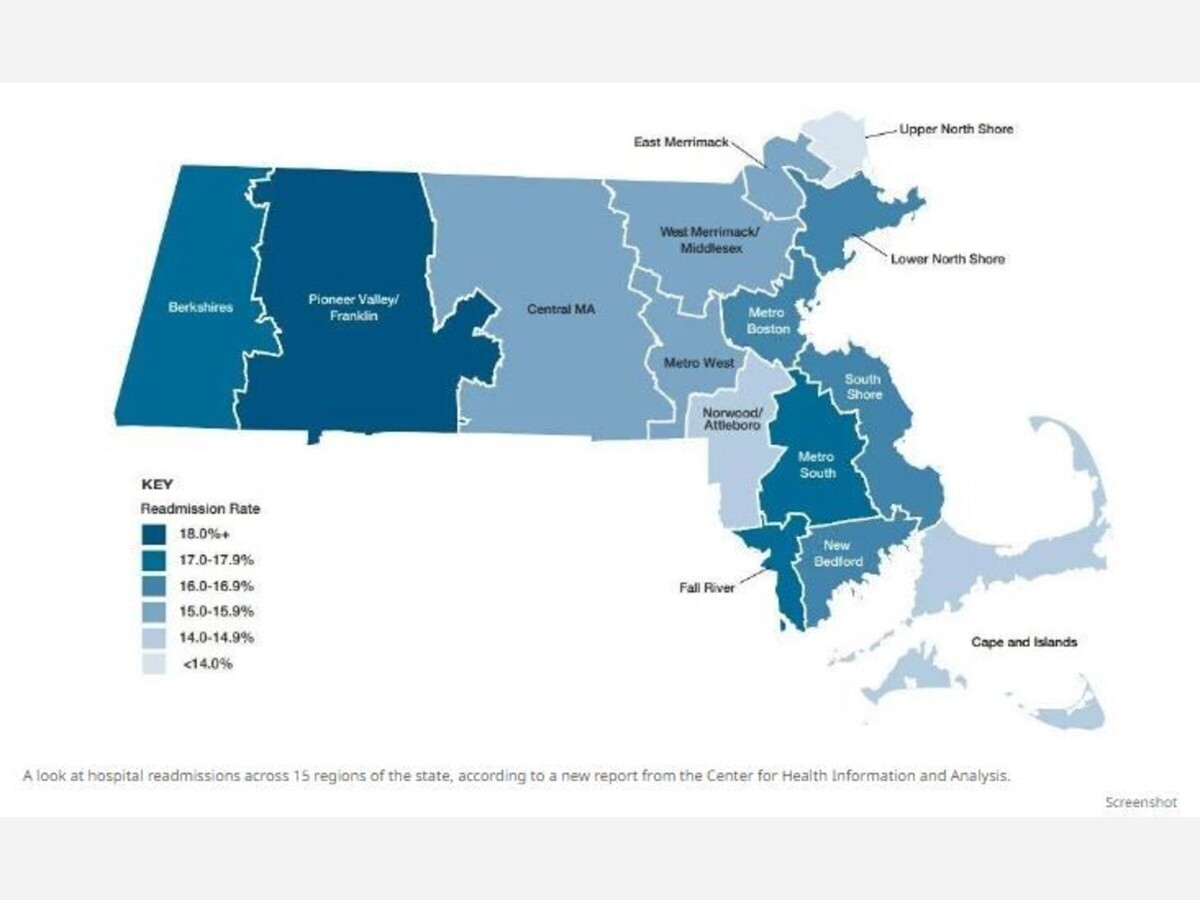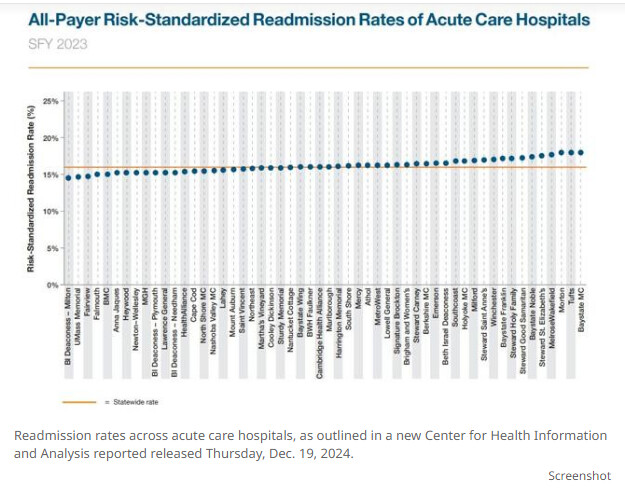Image

Alison Kuznitz | SHNS
The percentage of Bay Staters readmitted to hospitals shortly after initial visits has stabilized in recent years, though the rate in 2023 was higher among western Massachusetts residents and older Black and Hispanic patients, according to a new report from state health analysts.
The statewide readmission rate, defined as any unplanned hospitalization within 30 days of an eligible discharge, was 16% in 2023 -- a number that's held steady since 2020 but had reached 15% in 2013 and 2014, the Center for Health Information and Analysis said in a report released Thursday.
Analysts explored how hospital readmission rates varied across insurance type, geographic location, race and ethnicity, and hospital systems. They excluded data dealing with obstetric or primary psychiatric care discharges.
CHIA found that Black and Hispanic patients ages 65 and older had higher readmission rates -- 17.8% -- compared to patients in other racial/ethnic and age groups. Patients dually enrolled in Medicare and Medicaid logged the highest readmission rate of all payer groups at 21.7%, while commercially insured patients had the lowest readmission rate of 9.9%.
CHIA says that unplanned hospital readmissions "can be used as an indicator of health system performance and have been a key measure of health system quality and value since the Affordable Care Act's passage in 2010." The metric can affect hospital funding, and it can also help pinpoint "opportunities for improvement" and track hospital performance over time.
The report did not offer recommendations for policymakers to consider as they grapple with health care challenges, including rising costs and care access concerns, shoring up former Steward Health Care hospitals and dealing with the closures of two former Steward hospitals.

But CHIA did invoke a 2023 Commonwealth Fund report on state health system performance, in which Massachusetts had the best overall score yet "ranked among the lowest for avoidable hospital use and cost, including inpatient admissions for ambulatory care-sensitive conditions, potentially avoidable emergency department visits, and 30-day hospital readmissions for patients age 65 and older."
"The Centers for Medicare and Medicaid Services (CMS) measures hospital readmission rates for Medicare fee-for-service beneficiaries and uses readmission rates in measures of hospital quality and for purposes of rewarding or penalizing performance," the report continued.
CHIA carved the state into 15 geographic regions and found patients living in the Pioneer Valley/Franklin region had the highest readmission rate of 18.5%. The lowest rate was 13.9% in the Upper North Shore.
The highest share of frequently hospitalized patients -- who are hospitalized four or more times within 12 months -- were in the Pioneer Valley/Franklin, Fall River and Metro South regions, the report found.
Across hospital systems, UMass Memorial Health had the lowest readmission rate of 14.9% when adjusted for various risk factors. Baystate Health had the highest risk-standardized readmission rate (RSRR) of 17.8%.
And across acute care hospitals, the report said RSRRs ranged from 14.1% at Beth Israel Deaconess-Milton to 19.1% at Baystate Medical Center.
The report also delved into the types of medical conditions fueling repeat hospital visits. Nearly 45% of sickle cell hospitalizations led to readmissions. About a quarter of hospitalizations tied to opioid abuse and dependence also resulted in readmissions.